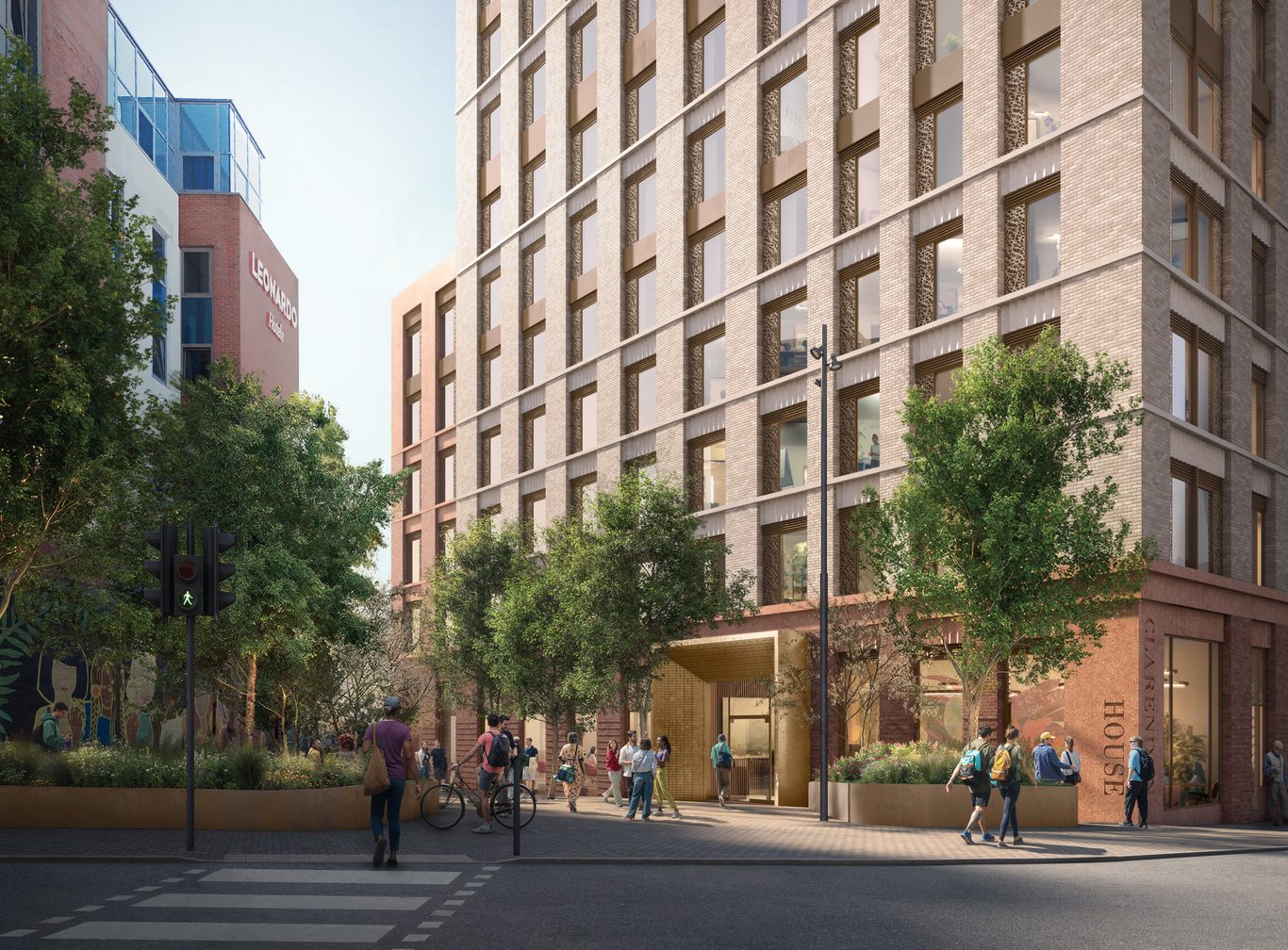
Planning Application Submitted for Clarendon House, Exeter
Planning Application Submitted for Clarendon House, Exeter
Chapman Taylor, working alongside Zinc Real Estate, Alium Group, ROK Planning, and Churchman Thornhill Finch, is pleased to announce the submission of a full planning application for the redevelopment of Clarendon House in Exeter’s emerging Eastgate development area.
The proposed scheme will deliver 297 high-quality Purpose-Built Student Accommodation (PBSA) units at a key city centre gateway location, opposite the newly developed St Sidwell’s Point Leisure Centre. The vision is to create a vibrant new student community, supported by extensive internal and external amenity provision, and a new Innovation Hub designed to connect students with local enterprise and enhance graduate retention in the city.
This transformative project has been developed through an extensive consultation process involving Exeter City Council, Historic England, and the wider public. The scheme includes a new landscaped public pedestrian route from the Triangle car park to Western Way, strengthened by improvements to pedestrian crossings and the surrounding public realm. The new building steps in height across the site, with the tallest element reaching 10 storeys, and has been carefully designed to respond to key views of Exeter Cathedral while contributing a strong, contemporary presence at a critical urban junction.
The design adopts a landscape-led approach, providing a new green edge, a series of garden rooms, and a generous communal courtyard that integrates seamlessly with the surrounding civic context. The architecture is shaped by local character and uses a refined material palette and elevational hierarchy to create a visually coherent and engaging composition.
Sustainability and flexibility are central to the proposal. The building targets BREEAM Excellent through high-performance envelope design and energy-efficient systems. Additionally, the modular accommodation layouts are designed to be adaptable, allowing future conversion to alternative residential uses.
A total of 160 secure and accessible cycle parking spaces are proposed, and the development is car-free to support the city’s sustainable transport ambitions. The landscaping and biodiversity strategy ensures the retention and enhancement of greenery on-site, while new street trees and water management features contribute to a more climate-resilient urban environment.
The application is now under review by Exeter City Council, with a decision anticipated later this year. The team looks forward to delivering a high-quality, forward-thinking development that supports the ongoing regeneration of Eastgate and helps meet Exeter’s growing housing needs.



